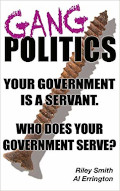|
|
|
|
|
|
|
|
|
Dear reader,
Welcome to the December 2019 edition of The Director’s Dilemma. This month our dilemma examines the possible responses when a 360-degree board review comes up with unexpected, and unwelcome, results.
In my twenty years’ board experience I have seen a lot of dilemmas; all can be resolved when there is goodwill, a degree of skill, and a committed hard-working board of directors. Our three contributors have provided a range of ideas in response to this month’s dilemma. I hope that you enjoy the insights and find them helpful in extending your governance knowledge.
To read this email in a browser, go to www.mclellan.com.au/newsletter.html and click on 'read the latest issue'. I hope you enjoy the latest dilemma:
 Robert chairs the audit committee of a large listed board that he joined a few months ago. Unusually, his company has a process of asking the audit committee to review the board’s appointment. Robert read the previous performance reviews and saw that they were very ‘compliance oriented’ and focused on whether the board had performed all the actions in their charter, constitution, and other contractual agreements. Robert chairs the audit committee of a large listed board that he joined a few months ago. Unusually, his company has a process of asking the audit committee to review the board’s appointment. Robert read the previous performance reviews and saw that they were very ‘compliance oriented’ and focused on whether the board had performed all the actions in their charter, constitution, and other contractual agreements.
The board has been meeting its obligations and Robert believes it is performing well based on his short experience and the calibre of his fellow directors.
Robert decided that he would bring in a specialist company to do a more ‘performance oriented’ review. He hoped that this might highlight areas where the board could improve rather than confirm that the board was meeting obligations. The decision was endorsed; a provider was appointed to do a board self-assessment and a brief investigation of management and major shareholders’ views.
The results are in. As expected, the board rated itself and its processes highly, shareholders were also pleased and particularly complimented the chair on accessibility and open disclosure. Management, however, felt the board were not adding any value, required far too much detail in reports which they then appeared to pay scant attention, and to be dismissive of management’s concerns and expertise.
Robert and the chair are both shocked. They had no idea management felt this way. They are sure their colleagues will feel the same. However, they accept the truth of a unanimous opinion and want to move fast to understand and remedy the issues.
How should Robert start to fix this?
|
|
|
|
Doug's Answer
 The board and, I assume, the CEO’s relationship with shareholders is fine. The board and, I assume, the CEO’s relationship with shareholders is fine.
I also assume the business itself is being managed and is performing well, otherwise it would raise questions of the CEO.
However, placing the responsibility for board reviews in the hands of the audit committee will support a compliance focus, possibly steer the board to that end.
Robert’s initiative in commissioning a more ‘performance oriented’ review is obviously well-timed.
Management’s response raises the following at a board level:
-
Board and management seem disconnected.
-
Is the CEO feeding back to management both compliments and criticisms?
-
Is the board being blindsided by the CEO in terms of access to management or is the board operating too much at arm’s length of its own volition?
-
Does the management understand the function, role and responsibility of a board of directors?
I would suggest:
-
The CEO arranges a company directors education program for the management and that the CEO also attends. This should include a ‘reporting to the board’ segment.
-
Regular face to face presentation of reports by management to the board should be put on the agenda.
-
Feedback from the board through the CEO including both compliments and constructive criticisms around actual outcomes should follow every board meeting.
-
Regular on-site visits by directors to the workplace should be scheduled followed by open Q&A.
The enhanced understanding and rapport will go a long way to resolving a potentially damaging disconnect.
Doug Jardine is the convenor of the Gordon Directors’ Group, and Managing Director of Doug Jardine & Associates. He is based in Sydney, Australia.
|
|
|
|
Julie's Answer
 Of all the elephants, in all the boardrooms, differing perception of board performance between executives and directors is the biggest. Once seen it must be mentioned, and then managed. Of all the elephants, in all the boardrooms, differing perception of board performance between executives and directors is the biggest. Once seen it must be mentioned, and then managed.
A good first step is for board and management to discuss the review. This is best done in a neutral and hospitable environment. Ideally the consultant who led the review should facilitate, and validate the different opinions. Once everyone is clear that each team values the other team’s perspective, they can explore areas of agreement and possible solutions.
Both sides need to be candid about hopes and fears. Directors need to explain why they want information, what their duties are, and how they rely on reports – even if they don’t discuss them in meetings. Management need to describe the behaviours that cause feelings that directors don’t value their expertise or share their concerns.
Once both groups have a shared understanding of the issues, they can agree practices to resolve them. These might include:
-
Specifying maximum length for board papers
-
Providing time in the agenda for management to question the board on how papers have been received and what issues they see with the topic
-
Ensuring that questions ‘on notice’ from the board to management are routed through the chair or CEO to avoid overload
-
Spending time working as a team on developing strategy or solving problems
-
Providing training on governance for the executives and on the business issues for the directors
-
Socialising to build personal relationships between board and management.
This is a dangerous situation that can be resolved if both sides work with goodwill.
Julie Garland McLellan is a non-executive director and board consultant based in Sydney, Australia.
|
|
|
|
Carol's Answer
 The “blindspot” is the engagement of the Board with the management team and the Board culture and attitude towards this needs to be addressed. The “blindspot” is the engagement of the Board with the management team and the Board culture and attitude towards this needs to be addressed.
The Board believes its’ responsibility is to make sure that the company is meeting its’ fiduciary duties. The executive team believe that its’ responsibility is to drive the company performance. Both parties may well be delivering against these goals but the fundamental challenge for both is to deliver a balanced performance for the whole company that meets the needs of underlying shareholders. Therefore, both parties need to align and enhance collaboration against shared and agreed objectives, delivering sustained shareholder value in accordance with corporate governance.
Robert therefore needs to move the Board culture slightly away from a completely ‘compliance orientated’ culture and whether or not the Board had performed all the actions in their charter, constitution and other contractual agreements and engage further with management. If management feels the Board is “not adding any value, requires far too much detail in reports which they then appear to pay scant attention to and are dismissive of managements concerns and expertise” then Robert and the Board need to address this as it could damage performance of the company.
The Board needs to change its culture to be more engaged with management and have better communication with the executive team. Following the Board Audit, coaching of the Board Members and executive team could be undertaken. The roles and responsibilities of both parties should be redefined. A suggestion could be to implement a ‘buddying system’ for example, the Chair could be paired with the CEO, the SID with the COO, the Audit Chair with the CFO and the Remuneration Chair with the HRD. This would naturally improve the communication between the Board and the executives rather than have it forced and contrived. Additional Board meetings could also be put in place and regular communication/ meetings with the Chairman and Chief Executive could be scheduled to foster better engagement. As a new member of the Board, Robert could play an instrumental role in changing the culture.
Carol Leonard is a Partner and Head of the Board Practice at Inzito Partners. She is Based in London, UK.
|
|
|
|
Book review - Gang Politics

This short book by Al Errington looks at the governance of governments. It provides many pithy definitions of phenomena that we observe and frequently name inaccurately.
I particularly liked this one: "Governance is a confusing and very misunderstood subject that is at the root of both organizational performance and accountability. Governance is fascinating, very poorly understood broadly, and a substantial influence on global economic and political issues. Governance is the structure, relationships and processes of authority, responsibility and accountability in a business, organization or government."
Gang Politics is a book written about government and politics from a governance perspective analysing why government dysfunction happens and perhaps help us understand what we can collectively do to ensure our governments serve us, its people. Although corporate governance gets very few mentions in the text, the ideas are easily extrapolated and applied to the commercial context – especially for government owned companies.
Available at Amazon.com
Julie's News - In November
 A highlight of the month was being asked to present on “The Joy of Boards”. It was so nice to share with an audience why I find directorship so inspiring and exciting rather than focusing on the responsibilities, duties, seriousness of consequences, and need to keep learning (which is also one of the joys). The presentation was for an industry association which wanted to increase the number of people willing to stand for election to the board. Judging by the questions (which continued long after the drinks had been poured) there was a lot of interest in the topic and, hopefully, there will now be more interest in the board
elections. A highlight of the month was being asked to present on “The Joy of Boards”. It was so nice to share with an audience why I find directorship so inspiring and exciting rather than focusing on the responsibilities, duties, seriousness of consequences, and need to keep learning (which is also one of the joys). The presentation was for an industry association which wanted to increase the number of people willing to stand for election to the board. Judging by the questions (which continued long after the drinks had been poured) there was a lot of interest in the topic and, hopefully, there will now be more interest in the board
elections.
I was also happy to spend a few hours mentoring emerging directors and – hopefully – helping them to have a lasting positive impact on their boards and organisations.
My own boards kept me busy with standing in for a travelling chair, drafting ASX announcements, shepherding a nominations and remuneration committee through complex director elections following adoption of a new constitution, hosting AGMs, and attending some very interesting planning sessions. I stepped down from the board of Fitness Australia after helping to develop a new constitution, recruit a new CEO, and chart a new strategy. In the photo I am smiling with my retiring colleagues after welcoming our replacements onto the board. I hadn’t realised how short I am until I noticed how tall I make them look!
It was great to travel to Canberra, Victoria and around NSW to deliver board education and strategic workshops. I also ran some online webinars and developed an online course in ‘Not For Profit Board Essentials’ which includes an assessment task.
Overall, it has been a pleasantly productive month and now I am looking forward to the end of year festivities!
I am always keen to work more and will be delighted to hear from you if you would like to arrange a board strategy workshop, education session, or board performance review! Just call me on +61 411 262 470 or reply to this email for a discussion of how I might help your board.
Inspirational quote for December - This month my favourite quote is: 
A note on names - A few readers have asked me where I find the names for the protagonists in each case study; I 'borrow' them from people I meet or things that I read. Robert is an old Germanic name Hrodebert meaning "bright fame", derived from the Germanic elements hrod "fame" and beraht "bright". The Normans introduced this name to Britain, where it replaced the Old English cognate Hreodbeorht. Our protagonist will need to prove that he is bright if he is to avoid becoming famous for all the wrong reasons.
This newsletter - If you have any ideas for improving the newsletter please let me know. If you are reading a forwarded copy please visit my website and sign up for your own subscription.
Suggestions for dilemmas - Thank you to all the readers who have suggested dilemmas. They are greatly appreciated. I will answer them all eventually. I could not write this newsletter without your help and without the generous help of all the experts who respond each month to the case studies.
Let me help you - If you would like me to speak to or train your board, staff, audience and/or group please contact me at julie@mclellan.com.au.
Be a contributor - If you would like to attempt a response to the dilemmas for publication you will be most welcome. Simply reply to this email and let me know.
Let's connect - I use LinkedIn to share information about boards and directorship with my friends and acquaintances. If you use LinkedIn and we are not yet connected I will welcome a connection from you. You can find me at linkedin.com/in/juliegarlandmclellan.
Farewell until the next issue (due 1 February 2020). I look forward to greeting you again then. In the interim I hope you will enjoy health, happiness and hard work.
Enjoy governing your corporations; we are privileged to do what we do!
Best regards,
Julie
Disclaimer:
The opinions expressed above are general in nature and are designed to help you to develop your judgement as a director. They are not a definitive legal ruling and do not constitute legal advice. Names and some circumstances in the case study have been changed to ensure anonymity. Contributors to this newsletter comment in the context of their own jurisdiction; readers should check their local laws and regulations as they may be very different.
Privacy: I am privileged to have your contact details and keep them as safely as possible. I will alert you if they are ever accessed by any unauthorised person (the technical staff at ayuda help with publishing and issuing the Director's Dilemma and have access so they can send the newsletters to you). I do not sell your details to anyone; they are kept only for the intended purpose - sending you this newsletter and helping to build the judgement of company directors by providing a safe way to consider potential responses to real life events.
|
|
|
|
|
|
|
|
|
|
|
|
|
 Robert chairs the audit committee of a large listed board that he joined a few months ago. Unusually, his company has a process of asking the audit committee to review the board’s appointment. Robert read the previous performance reviews and saw that they were very ‘compliance oriented’ and focused on whether the board had performed all the actions in their charter, constitution, and other contractual agreements.
Robert chairs the audit committee of a large listed board that he joined a few months ago. Unusually, his company has a process of asking the audit committee to review the board’s appointment. Robert read the previous performance reviews and saw that they were very ‘compliance oriented’ and focused on whether the board had performed all the actions in their charter, constitution, and other contractual agreements.
 The board and, I assume, the CEO’s relationship with shareholders is fine.
The board and, I assume, the CEO’s relationship with shareholders is fine. Of all the elephants, in all the boardrooms, differing perception of board performance between executives and directors is the biggest. Once seen it must be mentioned, and then managed.
Of all the elephants, in all the boardrooms, differing perception of board performance between executives and directors is the biggest. Once seen it must be mentioned, and then managed. The “blindspot” is the engagement of the Board with the management team and the Board culture and attitude towards this needs to be addressed.
The “blindspot” is the engagement of the Board with the management team and the Board culture and attitude towards this needs to be addressed.
 A highlight of the month was being asked to present on “The Joy of Boards”. It was so nice to share with an audience why I find directorship so inspiring and exciting rather than focusing on the responsibilities, duties, seriousness of consequences, and need to keep learning (which is also one of the joys). The presentation was for an industry association which wanted to increase the number of people willing to stand for election to the board. Judging by the questions (which continued long after the drinks had been poured) there was a lot of interest in the topic and, hopefully, there will now be more interest in the board
elections.
A highlight of the month was being asked to present on “The Joy of Boards”. It was so nice to share with an audience why I find directorship so inspiring and exciting rather than focusing on the responsibilities, duties, seriousness of consequences, and need to keep learning (which is also one of the joys). The presentation was for an industry association which wanted to increase the number of people willing to stand for election to the board. Judging by the questions (which continued long after the drinks had been poured) there was a lot of interest in the topic and, hopefully, there will now be more interest in the board
elections.
